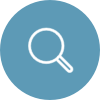The RN to BSN Completion Program is designed for those registered nurses (RNs) with an associate degree or diploma who are seeking to complete their bachelor of science (BSN) degree. The RN to BSN program at Felbry College is offered 100% online. Upon successful completion of the program, graduates will be eligible to seek BSN-RN level jobs.
Apply Now



